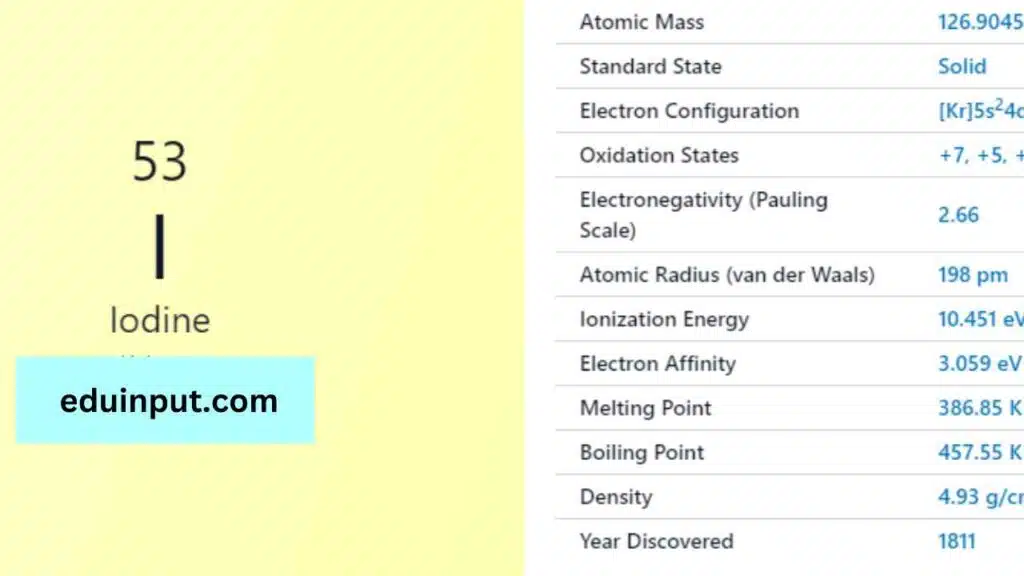Iodine-Properties And Applications
Iodine is a chemical element with the symbol I and atomic number 53. It is a non-metallic element that belongs to the halogen family. Iodine was discovered in 1811 by French chemist Bernard Courtois and is named after the Greek word “iodes”, meaning violet-colored.

| Property | Value |
| Name | Iodine |
| Symbol | I |
| Atomic number | 53 |
| Relative atomic mass (Ar) | 126.90447 |
| Standard state | Solid at 298 K |
| Appearance | Violet-dark grey, lustrous |
| Classification | Non-metallic |
| Group in periodic table | 17 |
| Group name | Halogen |
| Period in periodic table | 5 |
| Block in periodic table | p |
| Shell structure | 2.8.18.18.7 |
| CAS Registry | 7553-56-2 |
Physical Properties
Iodine is a lustrous, dark gray solid at room temperature. It has a melting point of 113.7°C and a boiling point of 184.3°C. Iodine is a relatively rare element in the Earth’s crust, and occurs mainly in seawater, brines, and in deposits of some minerals.
Chemical Properties
Iodine is a highly reactive element that forms compounds with many other elements, including hydrogen, oxygen, and metals. It is a strong oxidizing agent and can react violently with certain organic materials. Iodine can also form polyatomic ions and molecular compounds.
Facts
- Iodine is an essential element for human health and is a component of the hormone thyroxine, which helps regulate metabolism.
- Iodine deficiency is a major public health concern in many parts of the world, particularly in developing countries.
- Iodine has a distinctive violet color in its gaseous state and can be used as a test for starch.
- Iodine is used in various applications, including in medicine, photography, and as a disinfectant.
Applications
- Iodine is used in the production of acetic acid, which is used in the production of a wide range of products, including plastics, adhesives, and textiles.
- Iodine is used as a disinfectant in the form of iodine tincture or iodophor, which is used in hospitals and other healthcare settings.
- Iodine is used in the treatment of certain medical conditions, including hyperthyroidism and iodine deficiency.
- Iodine is used in the production of photographic film, as it is sensitive to light and can be used to produce high-quality images.







Leave a Reply